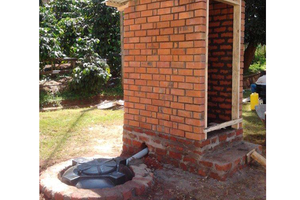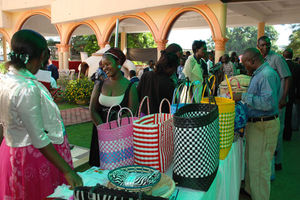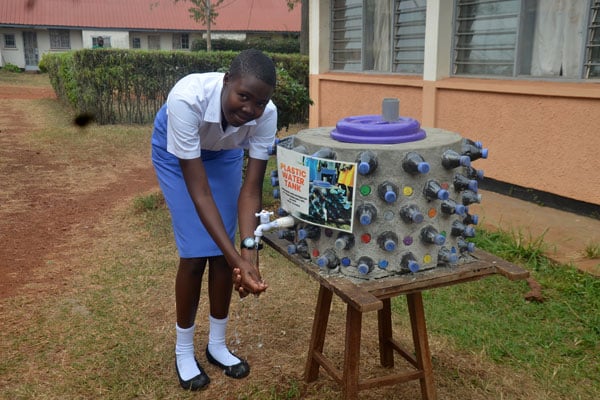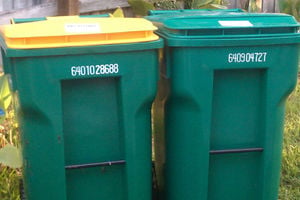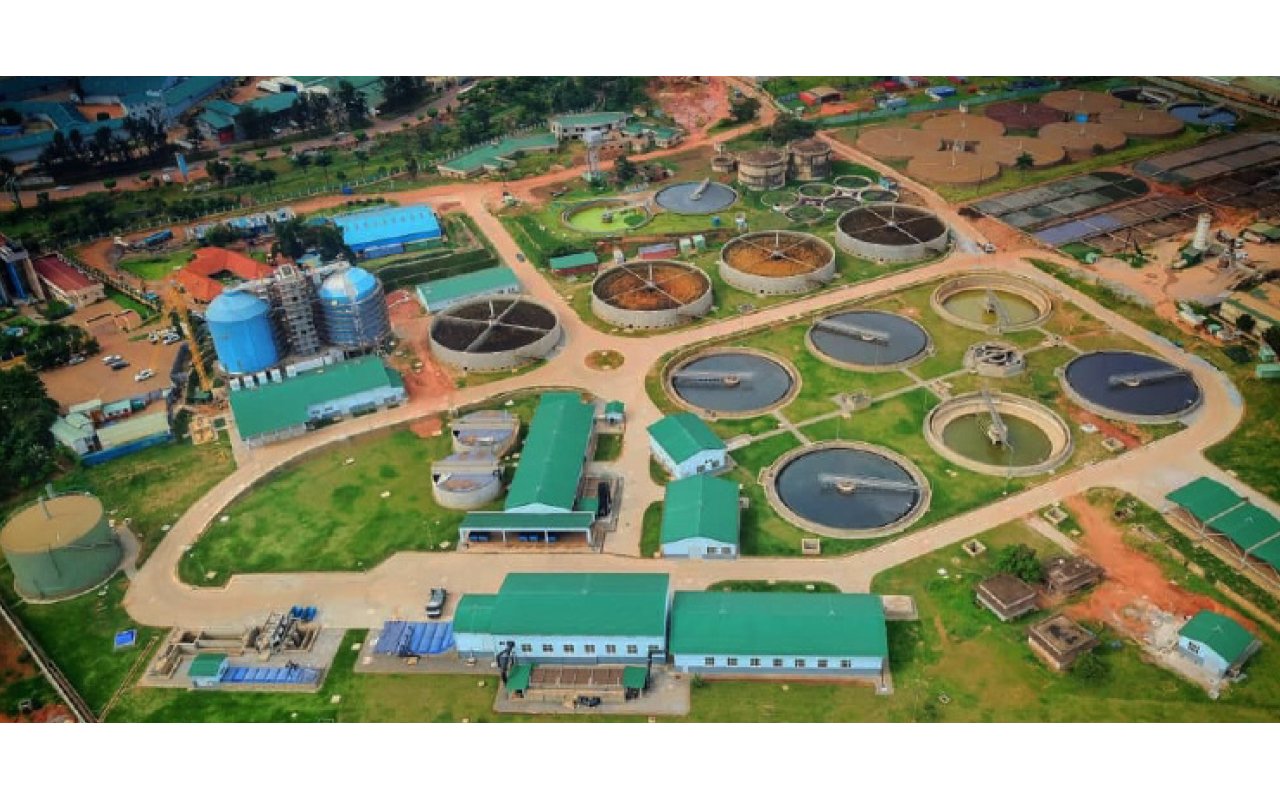
Getting 15 products from livestock dung
The National Livestock Resources Research Institute (NaLIRRI) in Wakiso District has recycling facilities that make useful products worth millions of shillings every month from waste.
“We get 14 products from cow dung,” says Dr Moses Mwesigwa, a veterinary doctor and senior business scientist at NaLIRRI, a research arm of the National Agricultural Research Organisation (Naro).
“From cow dung, we get bioelectricity, liquid soap, and gas for cooking. We also get the top-up acid for batteries, preservatives, mushroom growing media, we get shampoo, hand wash detergents, and bathing gel,” he says.

Officials from Naro and International Livestock Research Institute use handwash detergent made from cow dung on August 13 at NaLIRRI in Wakiso District. Photos/Tonny Abet
Dr Mwesigwa, who is working at the zero waste facility of NaLIRRI where 150 cows are kept, says they generate electricity worth Shs6 million every month using cow dung as the raw material.
The facility has a biodigester using dung from the cows kept there. The biodigester produces the bio-gas, which is used to produce electricity in the system established at the facility.
“Here we produce electricity equivalent to somebody paying six million per month to Umeme. We produce between 75 and 85 Kilowatts every day, which means we can have electricity for 200 homesteads,” he reveals.
Dr Mwesigwa says they are using the electricity to run operations such as milking cows and powering irrigation systems for plants grown at Naro, among others. He further reveal’s that the remaining waste (product) after the biodigester processes is used as manure and also repurposed as animal feed because of its high protein content.

A worker at Marula Proteen Limited in Kampala spreads the organic fertiliser for drying on August 14, 2024.
Turning city market garbage into fertilizer
Marula Proteen Ltd is a recycling firm located about three kilometres from Kampala City centre. Its operations manager, Mr Nathan Kayanja, says they use garbage from city markets to make protilizer organic fertilizer, which is fortified with antifungal and soil revitalising agents for better crop yield.
The company sells each 50kg bag at about Shs49,000.
“We can handle 25 tonnes of waste per week, but currently, we handle around 18 tonnes. The whole process is more of a circular economy where we are trying to get things from the garden back to the garden,” he says.
“Our initiative is focused on waste management, circular economy and organic farming by enriching Ugandan soil. People are relying on inorganic [fertilizer/nutrients].” he adds.
“However, they are forgetting about the soil structure because, without good soil structure, the plants cannot absorb the inorganic. So, when you improve the soil structure [through organic fertilizer], then you can improve the soil structure to hold inorganic,” he adds.
Ms Dianah Kyarikunda, the accounts in charge at Marula, says they are seeking partnerships to expand and handle more waste because they have the expertise and are making useful products.
“In line with what happened in Kiteezi, we want to absorb all that. We need support in regards to space to put up our solar dryers [for drying organic fertilizers],” she says.
But Marula is not a monopoly. Some dealers in manure in Kampala say they collect cow dung from abattoirs and other waste from factories such as Mukwano Industries to make the final composite, which they sell at Shs10,000 per kilogram.
Transforming sewage into fertilizer - NWSC
“It is only waste if you waste it,” says the spokesperson of the National Water and Sewerage Corporation (NWSC).
Mr Samuel Apedel says: “One of the ways in which we manage waste, especially sewage, is that we treat it so that the effluent from your bathroom and toilet is safe to be put back into the environment.”
“That is why most of the sewage treatment plants are near swamps. From sewage, we also make organic fertilizers, which people use for landscaping, flowers, agriculture, as well as long-stemmed crops,’’ he adds.
Mr Apedel also revealed that they have partnered with different companies to manage waste to generate energy, which has preserved the environment. “We’ve been partnering with Water for People in Lubigi where they now make briquettes, in one way, we are trying to save the trees [wood fuel],’’ he says.
‘’In Bugolobi, we have the Nakivubo Waste Management Project where, with two generators, we are producing electricity of 630 kWh [kilowatts per hour of power or units] using biogas from sewage and enough to run the sewage treatment plant [pictured above], provide lighting, and power computers,’’ he reveals.
Mr Apedel says for domestic use, the 630 kilowatts of power per hour or units would serve between 440 to 500 households.
